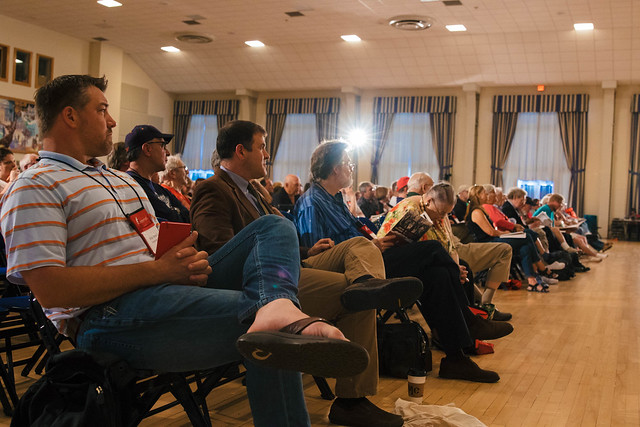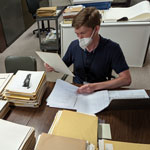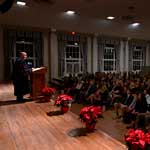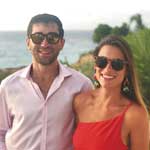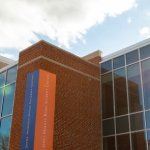
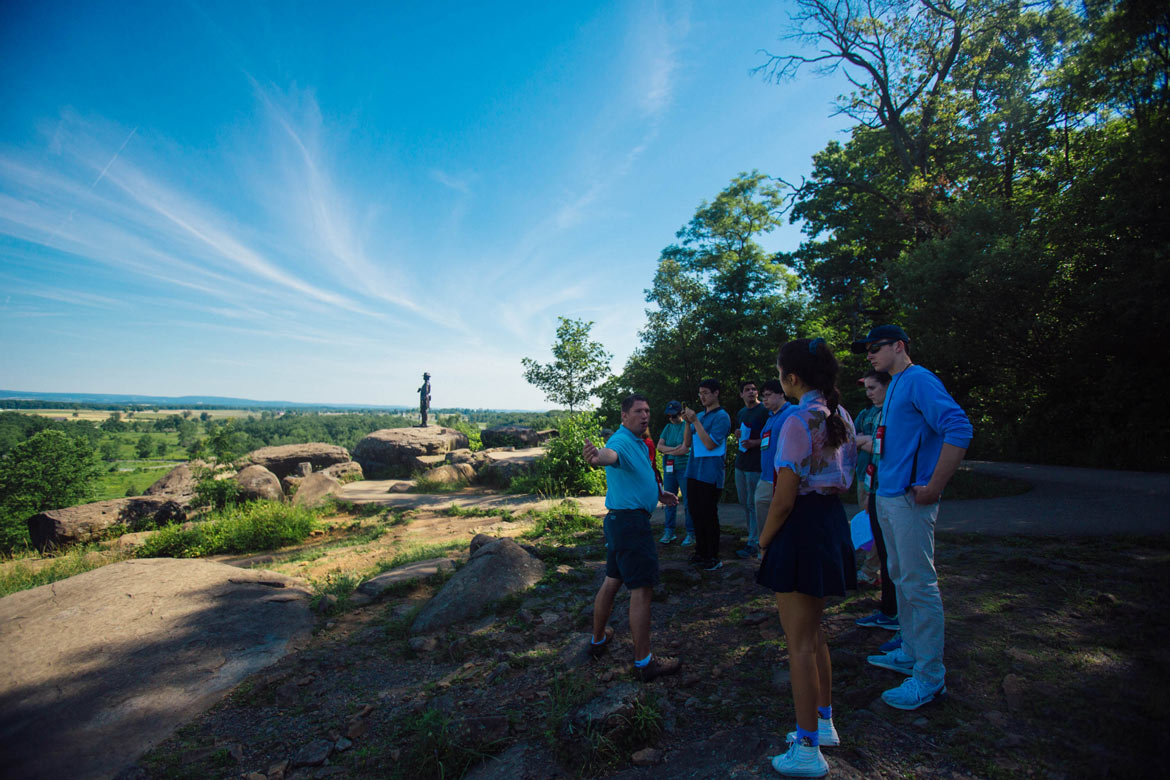
Most students hope for an internship where they can learn about an industry they are interested in, develop a few key skills for that industry, and make valuable connections that could help them enhance their professional network.
Jake Farias ’16 was able to do this and so much more as last summer’s recipient of the Civil War Institute (CWI) at Gettysburg College’s Robert Sibley Cooper Fellowship. Not only was he able to work alongside some of the leading experts in the field of history, but he was also charged with creating an original educational workshop for high school students attending the nationally-renowned CWI conference.
For over 35 years, the CWI has brought together leading historians and public audiences for small group discussions, battlefield tours, lectures, roundtables, and panel conversations about the Civil War era.
However, a fellowship working with the CWI’s annual conference was not an opportunity Farias had originally anticipated.
“I had applied for the CWI’s Pohanka program, but after the interviews, Dr. Titus approached me with an opportunity that fell outside of that program,” Farias explained. “She told me that I’d be responsible for developing a historical simulation for the conference, and I was excited, not only to be able to work with and attend the conference, but to have an impact on it, too.”
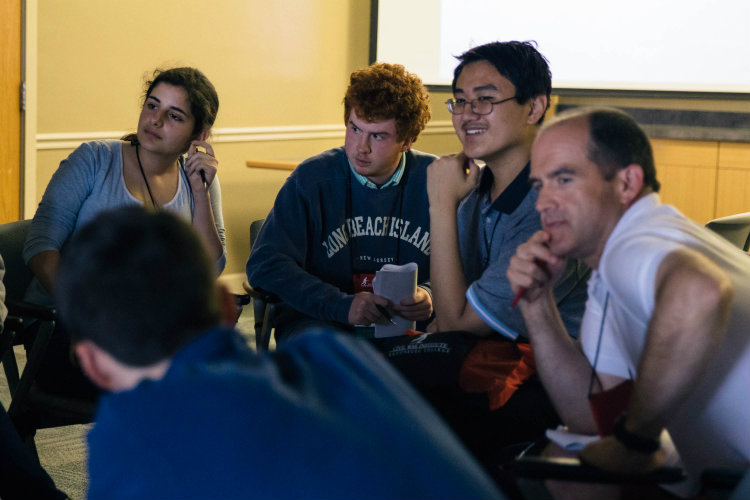
The CWI’s High School Scholarship recipients participated in the workshop created by Farias for this year’s annual conference.
Farias was familiar with the annual CWI conference well before associate director of the CWI Jill Ogline Titus approached him with her offer. In fact, Farias had the unique experience of attending the conference as a high school student, which confirmed his passion for history and convinced him to apply to the College.
“I thought we would sit around and talk about the battle and the war as a whole, but I ended up in a lecture about Irish fighters on both the Union and Confederate side of the war, and a discussion about the experiences of escaped slave women who made it to the North,” Farias stated.
“It opened up the possibilities of the field of history at very early age for me, and it made me realize that history was something I wanted to pursue because it isn’t as cut and dry as people might assume.”
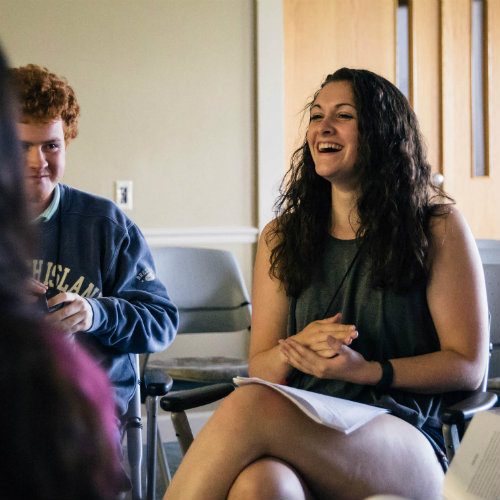 After being accepted to the College, Farias found that history was discussed the same way in his classes at Gettysburg as it was during the conference. He declared a major in the discipline, and minored in education.
After being accepted to the College, Farias found that history was discussed the same way in his classes at Gettysburg as it was during the conference. He declared a major in the discipline, and minored in education.
When Titus offered him the opportunity to combine his passion for engaging others in the discussion of history with an opportunity to return to the conference he knew and loved, he didn’t hesitate to accept.
As the CWI was interested in finding new ways to introduce high school student participants to the intertwined issues of race and democracy at the heart of the conflict, Farias’s workshop focused on the 1863 New York City draft riots and the toll the war was taking on a wide range of American people–from immigrants and free African Americans to business leaders and northern politicians. More importantly, it introduced students to the kinds of questions and debate they can expect in a collegiate atmosphere.
“Jake’s research into the draft riots served as the basis for the simulation pioneered this summer with the High School Student Scholarship recipients. The goal of the simulation is to encourage participants to engage in historical thinking, weigh the variables that motivate individual actions, better understand the viewpoints of others, and wrestle with some challenging questions about the rights and responsibilities of citizenship,” stated Titus. “We couldn’t be more pleased with the work Jake’s done, and the doors it’s opened for us.”
Specifically, Farias uncovered original documents from the New York City draft riots, identified some of the key players in the event, developed historically accurate roles for the students to assume, and provided an education plan for a moderator that allowed the students to debate between a few contemporary courses of action.
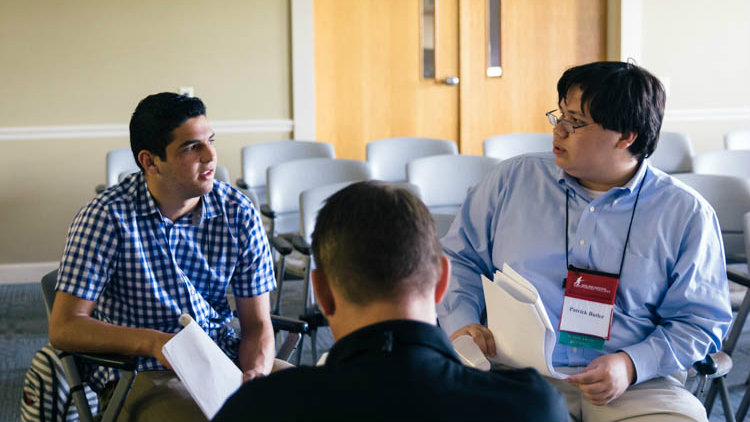
While he is proud of his research and the foundation he has provided for the workshop, he is most excited about applying the lessons he has learned to a classroom of his own.
“Student-led learning and student-led achievement is really where education is going,” said Farias, who recently accepted a teaching fellowship at Nativity Preparatory School of New Bedford. “Creating interactive workshops, developing something that students can really make their own while gaining a deeper understanding of the lesson—I know I’ll be able to use those skills in any sort of teaching career I want.”
Check out pictures from the CWI’s 2016 Conference in the photo gallery below or on Flickr. To learn more about next year’s Conference, the high school scholarship program, or CWI’s programs for current students, check out the CWI website.
